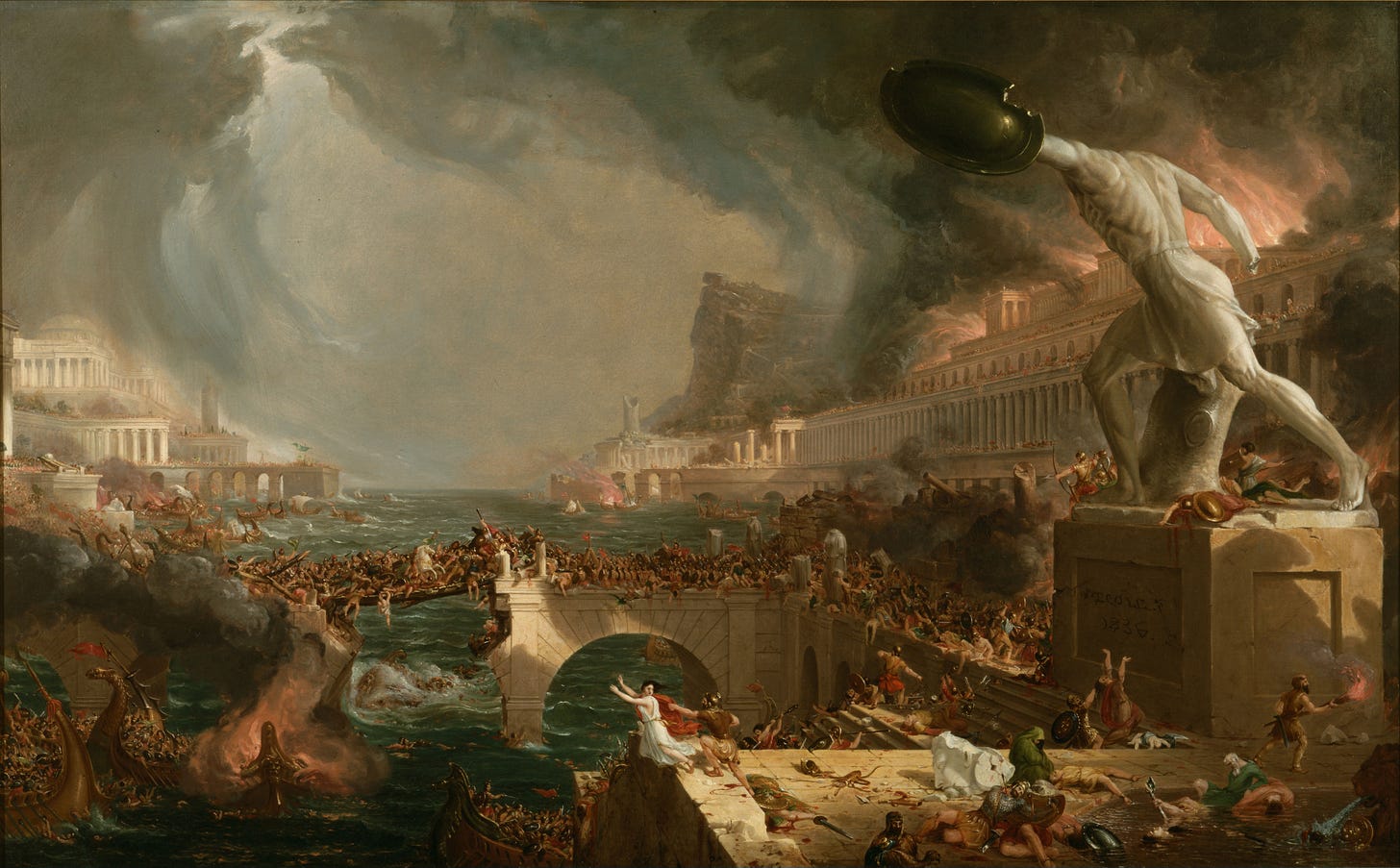I haven’t heard much about Climate Change lately. All the political hype around the Green New Deal has long since been put in the grave and Greta Thunberg moved on to browner pastures (Palestine). But I think there’s another reason we don’t hear as much about climate change these days.
It’s because we have something new to be apocalyptic about.
AI has taken over as the new Big Scary Thing. We have a new set of public experts espousing the importance of AI Safety and their own personal measurement of p(doom). We colloquially call them Doomers.
And let’s be honest, they talk a pretty good game. There’s a lot about AI that’s frightening. The capabilities. The pace of change. Embedded ideologies. How it will be adapted in warfare. All very scary. But it got me wondering.
There’s always been Doomers. Have they ever been right?
So I started doing some historical digging and put together a list of Doomer predictions. I mostly avoided mystical predictions (although there are a few religious predictions at the end of this first section) and instead focused on more concrete changes based on human behavior, the natural world, and technology.
There’s a lot of Doomer scenarios. We’re all still here so, news flash, the end of the world hasn’t happened yet. If nothing else, this listing shows that we’ve always been scared of change.
It turns out there have been a few accurately predicted disasters through the course of history. But first, let’s start with some historical doomer statements.
We’ve got a few Doomer categories below:
Let’s go!
(Note: the full charts may not show on mobile, click the link at the bottom for each)
Societal and Religious Change
My favorite Doomer scenarios from antiquity are Socrates worried about writing and Arabic numerals corrupting the youth.
Population, Food, and Resources
Malthus and Paul Ehrlich are the most famous of the population and food Doomers. Malthus doesn’t deserve this reputation, as he was a renowned economist on the cutting edge of understanding the world in 1798. But Ehrlich does — The Population Bomb wasn’t just wrong, it was dangerously wrong and was once called “one of the most spectacularly foolish books ever published."
It’s ironic that the world has never run out of any non-renewable resource. Meanwhile, we run out of renewables like solar and wind all the time — whenever it gets dark at night or the air is still.
Old Environmental Worries
We often forget that global cooling was a big concern in the 1970s.
Climate Change
There are very scary climate scenarios like the slow collapse of the Western Antarctic Ice Sheet or a significant slowdown in the Atlantic thermohaline cycle. But almost all of the more apocalyptic predictions made so far by scientists and politicians alike about the impact of climate change are false.
What About Technology?
Every time I hear someone worried about nuclear power I think about the absolutely perfect record of the U.S. Navy. Through the incredible foresight, focus, and training dictated by Admiral Rickover, the U.S. Navy has logged well over 5,400 "reactor years" of accident-free experience, and operated more than 80 nuclear-powered ships.
I’m very partial to the argument that social media has changed social interaction in plenty of negative ways. But the social fabric and strong friendships are still present in people’s lives.
I remember testing computers one by one for Y2K issues as a freshman in college thinking “this is so stupid” the whole time.
What About Markets?
Market examples demonstrate one of the biggest flaws with doomer thinking: timescales. Whatever timescale you’re thinking of, you probably need to zoom out. Downturns and changes always seem interminable when you’re going through them.. but nothing in the markets is ever permanent.
Accurately Predicted Disasters
It turns out there have been correctly predicted disasters, but you’ll notice the language here is different. There is no statement that “the end is nigh!!!” or “this has changed FOREVER!”
I’m reminded of two related observations - the first is Arthur C. Clarke’s first law:
“When a distinguished but elderly scientist states that something is possible, he is almost certainly right. When he states that something is impossible, he is very probably wrong.”
Additionally, Paul Samuelson:
"Economists have correctly predicted nine of the last five recessions."
All of the below accurate predictions look like:
”IF [specific condition] THEN [specific consequence] BECAUSE OF [clear mechanism].”
These predictions are mechanical not mystical. They aren’t announcing the end times, they’re pointing at specific gauges and saying “this’ll blow if we don’t fix it.”
From all of this we can put together our own rule:
”The more apocalyptic a prediction, the less likely it is to be accurate."
But even though the apocalypse is probably not coming, the doomer predictions can be both wrong and useful. Doomsaying generates more attention than measured predictions. The psychology driving these predictions remains remarkably consistent — we're pattern-matching apes reacting strongly to potential negative risks. That makes the Doomers like our societal smoke alarms: annoying and mostly false, but you still want them working.





